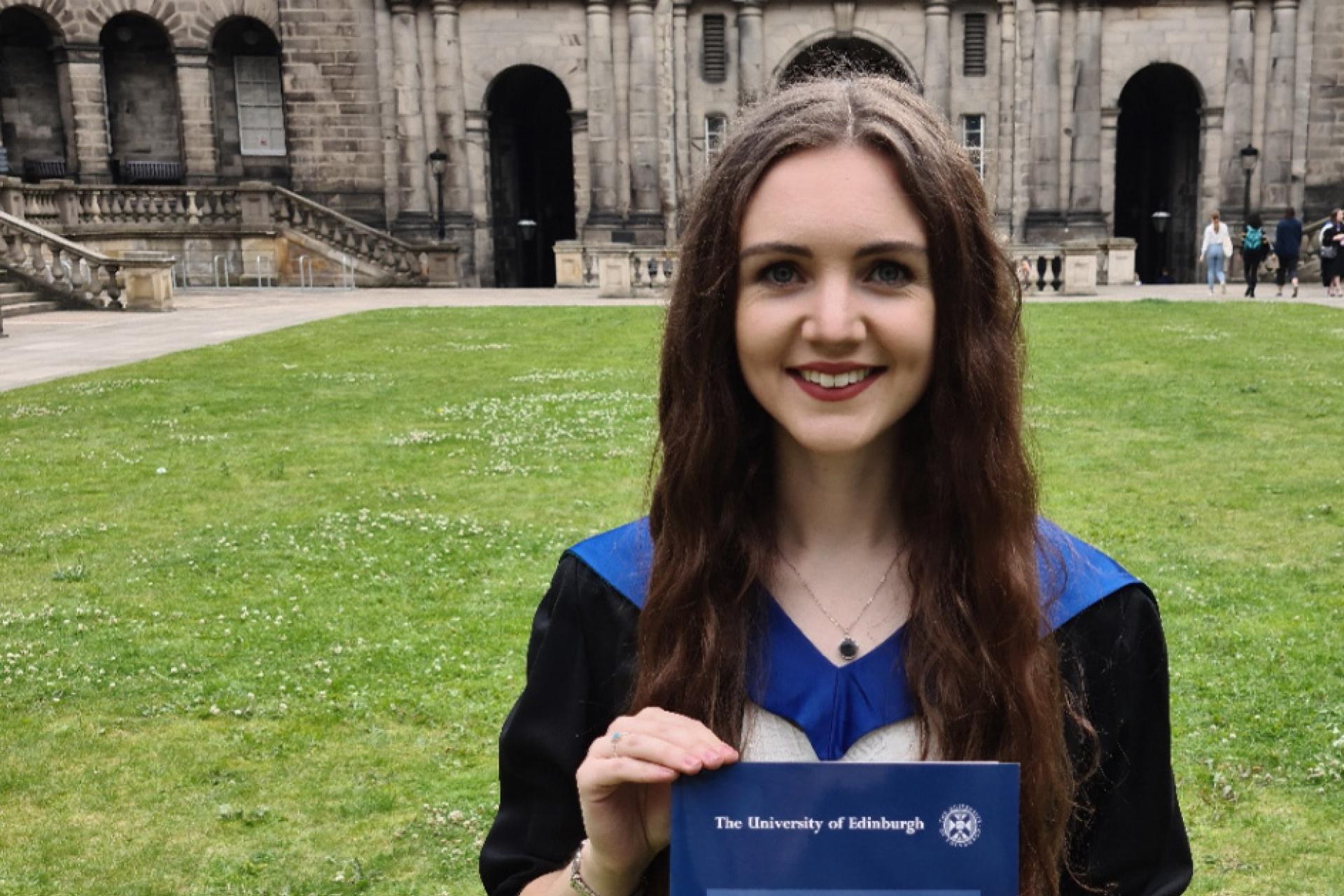Core courses
Courses on the Diploma in Professional Legal Practice are designed to provide you with the core practical skills and knowledge to enter the legal profession. The programme commences with a Foundation Skills Week which forms part of core teaching.

My time studying the Diploma at the University of Edinburgh has given me invaluable insight into the legal profession and has equipped me with the skill set and self-assurance needed to transition confidently into my role as a trainee solicitor.
Learning and teaching activities consists of a mixture live lectures, practical workshops, online podcasts and self-testing.
The overall aim of the Civil Court Practice course is to develop skills in relation to the conduct, funding and resolution of civil disputes by litigation.
The course includes a series of lectures and podcasts addressing the process of civil litigation in Scotland with particular reference to the sheriff court, covering inter alia:
- the rules of jurisdiction in Scotland
- the sheriff court Ordinary Cause Rules
- the structure of other civil processes in the sheriff court
- the law relating to pleadings
There are eleven three-hour workshops requiring students to undertake a series of exercises as they work through a number of case studies. The case studies replicate typical civil actions and are intended to allow students to undertake oral and written tasks as the actions progress.
This course aims to teach and develop your awareness of the practical legal, tax and commercial aspects relating to the formation, management, administration and operation of private limited companies and other forms of business entities. The course aims to encourage students to become commercially aware and to develop the practical skills and confidence needed to be able to advise business clients appropriately.
The course involves a variety of practical exercises designed to demonstrate the key areas of work of a business lawyer. These exercises will cover typical commercial transactions and procedures regularly undertaken and/or experienced by private limited companies and, where relevant, other forms of business.
The Conveyancing course is a key part of the Diploma in Professional Legal Practice at Edinburgh. The course covers the fundamental principles and practice of both residential and commercial property.
Throughout the course students will deal with one property – sometimes acting for the sellers, sometimes for the buyers and the lenders, to enable consideration of a transaction from different perspectives. Over the duration of the course students will work through a number of practical scenarios impacting the property. Workshops involve discussion with fellow students and tutors, as well as several drafting exercises. The drafting skills developed as part of the course will be of use in practice generally, not just in conveyancing. For example, students will develop their skills in letter writing, using and completing pro forma documentation (known as styles or precedents) and bespoke drafting skills.
At the start of the course students will focus on a residential transaction, although this learning will apply to commercial property as well. The final two workshops focus specifically on commercial property. Those students who wish to advance their learning in this area may also choose to take the Advanced Commercial Leasing elective.
For many of our students the Criminal Court Practice course is their first introduction to advocacy and through the medium of Scottish summary criminal procedure we aim to give students solid grounding in the basics of oral advocacy.
Workshops are built around complete sets of simulated papers and students learn the skills of advocacy and how criminal practice and procedure come together.
At the end of the course all students deliver a simulated plea in mitigation before one of the Sheriffs at Edinburgh Sheriff Court and we are very grateful for the strong links between this course and the Shrieval bench at Edinburgh.
The Financial Services and Related Skills course aims to ensure that students have a fundamental knowledge and awareness of the business and financial environment in which a legal practice operates. Topics covered are wide-ranging and include:
- the economic environment
- pensions
- investments
- mortgages
- tax and benefits
- regulatory reform
- interpretation of accounts and
- Solicitor Accounts Rules.
This is a very interesting and topical course which will benefit students on both a personal and professional level.
The course is taught over two semesters. Semester one focuses on financial products, planning and regulation. The first four weeks of semester two are dedicated to the accountancy section of the course.
The Private Client course covers all aspects of Wills, Trusts, and Executries as well as Succession and Tax Planning, and Adults with Incapacity.
The course aims to ensure that students have a sound practical knowledge of how to advise clients at different stages of their personal life, which will involve will drafting, providing lifetime and post-death tax planning advice, providing advice on trusts and their uses, the process of administering an executry, and issues surrounding mental incapacity and powers of attorney. This course also aims to give students an insight into the nature of private client practice and ties in the knowledge learnt from some of the other core courses in order to provide a client with holistic view of their affairs.
Although tax knowledge is an important part of the Private Client course it should be noted that tax will be taught pervasively across the entire Diploma.
The aim of this course is to expose Diploma students to the skills they will require as trainee solicitors and beyond. It covers:
- Interviewing and negotiation skills
- Professional conduct and ethics
- Risk management
- Legal writing skills
- Advising clients
- Thinking commercially: understanding law as a business
The course aims to set attitudes to work to enable students to work to their full potential during their traineeship. It is taught through a mixture of workshops, interactive lectures specific skills sessions and through participation in the work of the Edinburgh University Free Legal Advice Centre (FLAC). As part of FLAC, all students will conduct an interview, research a case, provide written advice and manage a file to completion.
Full programme details are available on the University Degree Regulations and Programmes of Study website.


